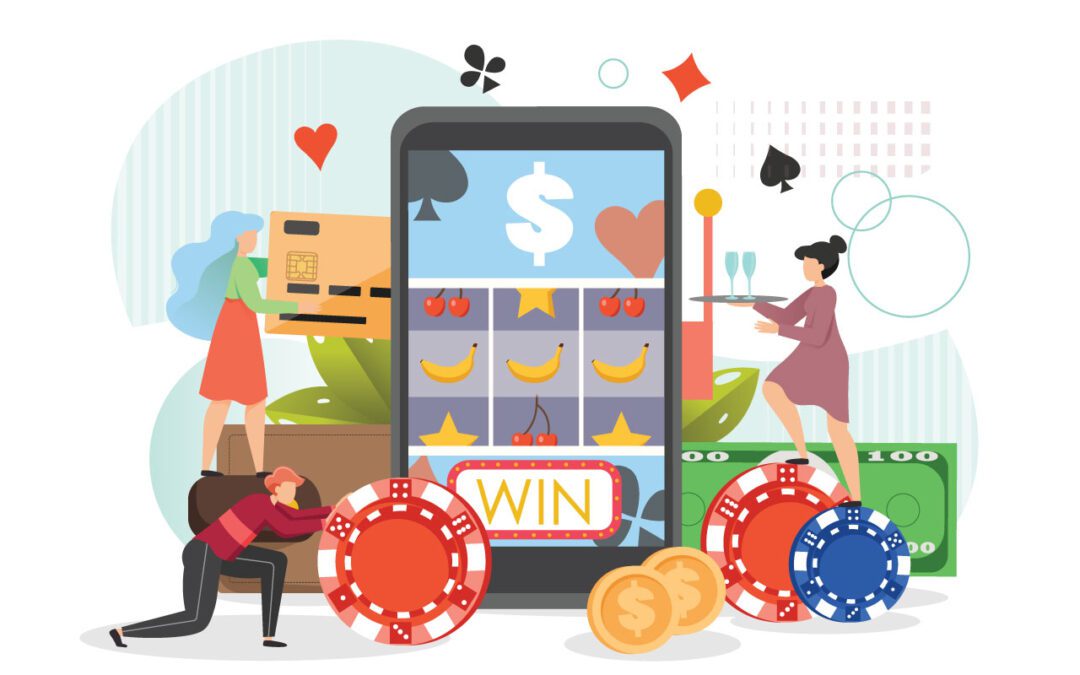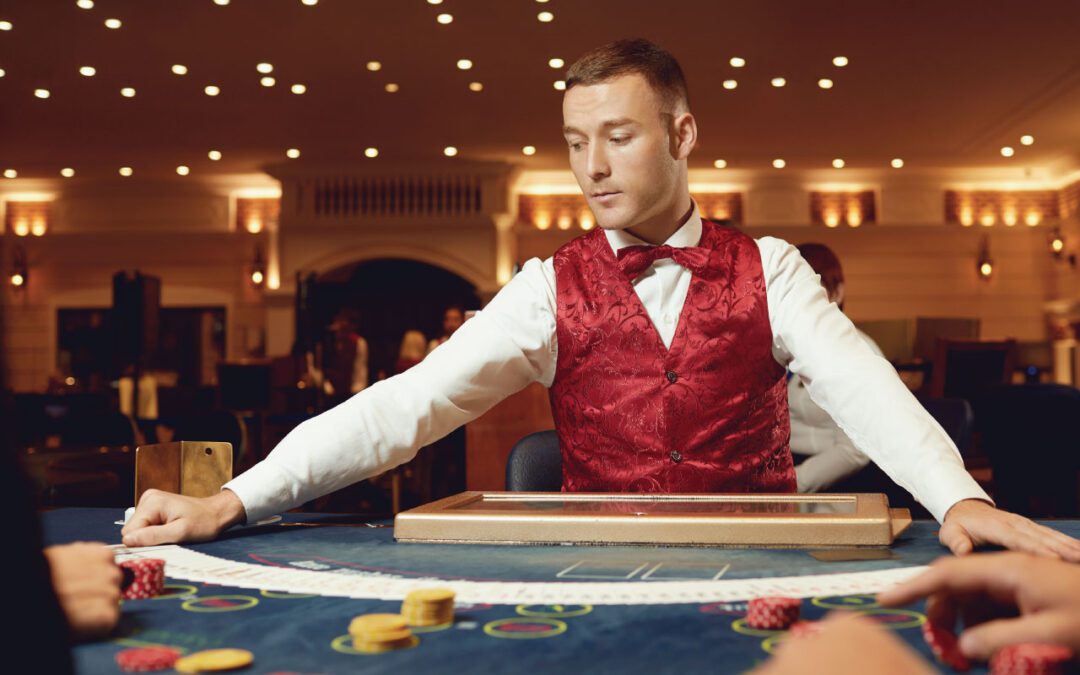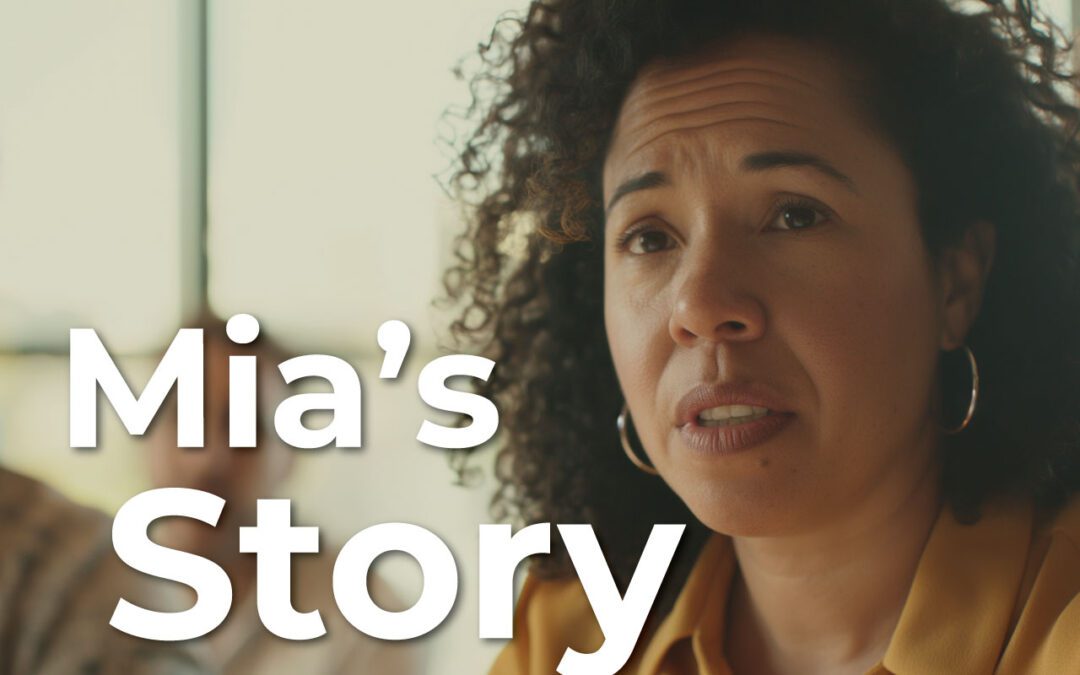
Mar 4, 2025 | ADVOCACY, PROBLEM GAMBLING, RESEARCH
Last fall, a lengthy report on the state of gambling was published in The Lancet Public Health, a British monthly journal that focuses on public health. The report (The Lancet Public Health Commission on gambling Wardle, Heather et al. The Lancet Public Health, Volume 9, Issue 11, e950 – e994) provides a comprehensive view of the development of gambling in the last two centuries.
The Lancet Public Health Commission’s report on gambling highlights the escalating global public health crisis posed by the gambling industry, particularly due to its rapid digital expansion. The commission estimates that approximately 450 million individuals worldwide experience harmful effects from gambling, with at least 80 million suffering from gambling disorder—a condition characterized by compulsive gambling behavior despite negative consequences.
The report states that the proliferation of mobile and online gambling platforms has made access easier than ever, contributing to the rise in gambling-related harms. Sophisticated marketing strategies, including targeted digital advertising and sports sponsorships, have increased exposure, especially among adolescents and children. This exposure is concerning, as early interaction with gambling increases the risk of developing gambling disorders later in life.
The commission identifies several severe consequences associated with gambling, including financial losses, mental health issues, family breakdowns, heightened risk of suicide, and increased crime rates. These harms are not evenly distributed; vulnerable groups such as adolescents and individuals from lower socioeconomic backgrounds are disproportionately affected.
To address these challenges, the commission advocates for stronger global regulatory controls, similar to those applied to alcohol and tobacco industries. Recommended measures include restricting access to gambling, limiting advertising and implementing public health campaigns to raise awareness about the risks associated with gambling. The commission emphasizes the need for policymakers to treat gambling as a critical public health issue to mitigate its widespread and profound impact.
In summary, the report calls for comprehensive action to curb the growing public health threat posed by the gambling industry’s expansion, particularly in the digital realm.

Mar 4, 2025 | PROBLEM GAMBLING
In light of the growing number of players who are becoming addicted to gambling—and suffering considerable harm to themselves and others in the process—many observers would agree that the gambling industry needs to change to ensure its sustainability over the long term. But how might it do that, or at least start the process?
Dr. Shawn DuBravac, PhD, CFA, an economist, futurist, bestselling author and internationally recognized thought leader, gave the industry a new perspective to think about during his keynote presentation at the annual conference of New Horizons in Safer Gambling.
Emphasizing the importance of disruption to the status quo as a starting point for change, Dr. DuBravac drew upon examples of how other businesses and industries have evolved over time to find new opportunities and embrace new strategies that prioritize health and wellbeing without compromising on engagement and profitability.
Dr. DuBravac noted that consumer preferences are shifting toward more sustainable and healthier options, and explained how business sectors are adapting to meet consumers where they are at.
Among his many examples was how Volvo emerged as a leader in safety in the automobile industry. He noted that an engineer at Volvo invented the three-point seat belt in 1959 that’s still used today. Volvo made a groundbreaking decision to release the patent to the entire automotive industry for free rather than profit from it. This decision was made in the interest of public safety so that everyone could have access to the life-saving invention. The three-point safety belt quickly became a standard feature in vehicles around the world. By prioritizing safety above everything else, Volvo created a whole new consumer segment—those who view car safety as most important factor in their purchasing decisions.
What might this look like in gambling? Might a company in the industry change the landscape by forging a new path that truly embraces safety for gamblers, creating a significant competitive advantage in the process?
Dr. DuBravac also cited how the world of professional cycling was completed upended when a new performance director came on the scene. By focusing on what he referred to as “the aggregation of marginal gains,” the director brought a relentless focus to a new strategy based on the search for a tiny margin of improvement in everything that was done. While the focus was on every possible aspect of biking, the philosophy can be applied to other industries, including gambling.
With a fresh perspective, safer play can be seen as an opportunity rather than an obligation. Perhaps the focus can be on what the industry wants to do rather than what it can’t change. While the industry can’t eliminate all harms from gambling, it can take steps to make it safer. Happy, healthy players who are having fun with their play are key to a sustainable industry and responsible growth. How do gambling businesses make safer play a competitive advantage?
Safer play can take many forms—it can be gamifying tools that help players set limits; it can be choosing products where risks are reduced or mitigated; and it can be determining how to market to players of varying risk levels. Safer play is also about how the industry supports its players through challenging conversations, and understanding how to interact with those who demonstrate high-risk behaviors.
The incorporation of innovative technologies and strategies can provide win-win solutions for safer consumer experiences while cultivating loyal, long-term success. Ultimately, safer play is good for business. Safer play needs to become the competitive advantage.

Mar 4, 2025 | PROBLEM GAMBLING, RECOVERY, STORIES
As I look back on the last several years, I can see times when my husband’s behavior was odd, when things didn’t seem quite right. At the time, however, I thought it was just him having a love for sports and it was his hobby.
But after I received a call from a detective in 2023 telling me about things that my husband had done, my world was turned upside down.
I have been with my husband for 14 years. I knew that he was into sports gambling since his college days but hadn’t thought much about it.
Three years ago, he had a significant win with one of the sports gambling accounts. I said, “Great! Let’s take this win and move on so it doesn’t become a problem” From that point on, I always tried to have conversations about the list of things we could do and which ones to prioritize. But he didn’t want to make concrete plans, always saying something like, “Yea, yea … we can talk about it later.”
About a year later, a friend of mine said she wanted to talk with me. She informed me that my husband had another big win, which he hadn’t told me about. My husband’s family also informed me that he’d borrowed money from them. This was the start of when things started to fall apart.
Trips to the mailbox became traumatic as late bill notices became common. Our power was shut off from not paying the electric bill. My husband’s mother started getting calls from debt collectors. I didn’t understand all of this, as I assumed we had all this money going back to his big win.
Several months after that, I received the call from the detective that changed my life. He told me my husband had committed some illegal acts over the last year. I was shocked. I could’ve never imagined my husband going to such extreme lengths such as stealing private information to obtain money.
The next half year was filled with uncertainty. While we waited to see what legal charges might be coming and the implications, my husband kept getting new jobs — and kept getting fired. Somehow, people kept finding out and news would spread to his new employers. We were in survival mode, not knowing what our future looked like.
During this time, my husband started going to Gamblers Anonymous meetings while I started attending Gam-Anon. Gam-Anon became my rock through all of the uncertainty. It’s taught me that you have to take one day at a time and that you can only control what you can control.
Charges finally came. My husband was convicted of six felony charges, including identify theft and business theft. He was sentenced to nine months in jail and five years’ probation. He ended up being eligible for electronic monitoring instead of jail time, still our lives have been forever changed.
Almost as bad as the charges were how we were treated at the hearings. My biggest fear was that everyone in our small community would find out. Many showed up at the hearings, and I remember how upsetting it was when someone laughed out loud when “gambling addiction” was mentioned.
The emotional impact of this has been immense. I was devastated and kept it to myself for almost five months, only telling a few people I could trust. I remember crying in the bathroom between the classes that I taught. It breaks my heart that my husband will never be able to practice in his field again.
While my trust in him has been very slow to come back, I’m optimistic about the future. I’m able to handle things better. I set boundaries, control finances and always know where my husband is.
For those reading this who have been affected by someone with a gambling problem, I would say this: When you’re in the thick of it and scared, know that things will eventually get better, and take advantage of the resources that are available, the best being sharing your story and hearing others stories. There is hope.

Mar 4, 2025 | ADVOCACY, PROBLEM GAMBLING
While about 30 Minnesota Senate and House hearings have focused on sports betting and other forms of gambling over the last few years, none have focused on the negative impacts of sports betting. Until now.
On January 8, the state legislature heard about the socioeconomic impacts of problem gambling and gambling addiction. Several speakers provided expert testimony from a variety of perspectives, including MNAPG executive director Susan Sheridan Tucker.
The hearing included the following speakers and perspectives:
Les Bernal, national director for Stop Predatory Gambling, spoke of concerns with proponents of expanded gambling trying to portray sports gambling companies as regular businesses when, in fact, he sees them as often using predatory practices to attract gamblers and encourage heavy gamblers to keep making bets. “It’s an adversarial relationship,” he said. “That’s true for all forms of commercialized gambling that is being done for profit.”
Matt Litt, a New Jersey-based attorney who specializes in litigation against sports books and gaming companies, spoke of the interactions he’s reviewed between gamblers and VIP hosts. He said that hosts send users trophies and offer all-expenses paid trips to users who spend a certain amount of money, enticing them to keep spending money.
Brett Hollenbeck, associate professor at the UCLA Anderson School of Management, highlighted the financial consequences of legalized sports gambling by presenting an analysis of credit scores, debt consolidation and collections data, bankruptcies and car loan delinquencies. He demonstrated that across nearly every metric, residents of states where sports betting was legal had worse outcomes than those in states that still prohibit sports gambling.
Similarly, Scott Baker, associate professor of Finance at Kellogg School of Management, and his colleagues found that people who bet on sports are more likely to overdraw their accounts, have higher credit card balances and invest less than those who do not gamble on sports.
Emily Arnesen, professor in the Economics department at the University of Oregon, and Kyutaro Matsuzawa, doctoral student in Economics at the University of Oregon, noted that the legalization of sports betting has increased certain types of intimate partner violence. They cited studies that have long documented that domestic violence increases when a local sports team loses. Arnesen and Matsuzawa estimated that sports betting legalization increased incidents of intimate partner violence by around 9%.
Susan Sheridan Tucker explained MNAPG’s neutral stance on gambling but emphasized its desire to advocate on behalf of those impacted by problem gambling, to ensure that appropriate consumer protections are incorporated into any legalization of gambling, and to secure adequate funding is set aside to advance prevention and treatment efforts.
Craig Johnson, a Minnesota certified gambling treatment provider with Club Recovery, spoke of the harms he has witness from his clients with gambling problems. “The effect of this disease on individuals is as profound as any addiction you can encounter,” he said.
In addition to the experts, several individuals with lived experience spoke of their personal struggles with gambling addiction and the impact it has had on their life and the lives of others.
The complete hearing can be viewed at https://www.youtube.com/watch?v=1RBsKS2BRTU.

Mar 4, 2025 | PROBLEM GAMBLING, RESEARCH
Artificial intelligence–commonly known as AI—is increasingly becoming a part of everyday life. We may think of its use in facial recognition apps, health care applications and even in a routine Google search, but what about its potential in problem gambling prevention and diagnosis?
Phil Sherwood, senior director of Responsible Gambling at PrizePicks, feels that AI can be a boon to responsible gambling programs and shared his perspective in a presentation to the MNAPG board in January.
What is AI?
AI is defined as the simulation of human intelligence in machines. It employs machine learning and language processing to automate tasks, enhance decision-making and boost efficiency.
Historic Use of AI
Gambling operators have been using AI for a long time to boost profits. It’s been used to improve marketing and to produce emotional appeals to specific customers, ultimately getting players to play more and more aggressively. AI has also been used to help gambling operators poach business from other operators.
Why use AI in Responsible Gambling Programs?
There are many reasons to employ AI in responsible gambling programs. Perhaps most importantly, AI can detect early signs of problem gambling, especially considering that more gambling and gaming is being done online. There is more data to access, such as time spent gambling, amount of money spent and other forms of gambling an individual might be involved in.
AI also enables personalized, real-time interventions. For example, if a player is exhibiting specific symptoms of problem gambling, the platform can send a personalized notification alerting them to risky behaviors or simply to make them more aware of their play. This notification might also suggest the responsible gambling tools that are available.
Another advantage of AI is that it reduces reliance on manual monitoring of a gambler’s behavior and allows for 24/7 oversight. With so many transactions available for analysis, a properly programmed AI system can identify potentially harmful behavior much better than humans.
AI-Driven Tools for Player Protection
AI can be used to protect players in several ways. It can identify risk behaviors such as loss-chasing and binge gambling. It can provide real-time alerts when it flags sudden changes that suggest immediate review. And it can also empower players gauge their own risk through gamified self-assessments in which they complete questionnaires. The gamified aspect may make players more receptive to the information that’s provided to them.
Interventional Levels Based on AI Insights
AI can suggest interventions commensurate with risk levels it assesses. For example, a system could address low-risk behaviors with basic pop-up reminders or session time limits. When a player exhibits moderate risk behavior, such as using different credit cards to gamble, the system can provide more tailored advice or impose or suggest temporary timeouts. When AI detects behaviors considered high-risk, it can instigate personalized care calls, exclusion options or even refer a customer to online behavioral counseling.
The U.S. is Behind in Use of AI
Phil noted that some operators, particularly those outside of the U.S. and those subject to regulations requiring the use of AI to monitor behavior, are incorporating AI to monitor player behavior and encourage player safety. However, he expressed concern that the U.S. is fearful of AI and that it’s use is discouraged, something he says would be an egregious mistake.
Challenges and Considerations in AI Implementation
While AI appears to hold considerable promise in protecting players from harm, there are challenges in its implementation. Some of those include privacy concerns (ensuring responsible use of player data), regulatory compliance (aligning AI tools with different jurisdictional standards) and the need for continuous improvement (models need regular updates based on evolving behaviors and research).
The Future of AI in Responsible Gaming and Problem Gambling
Looking ahead, Phil sees increased realization of the potential of AI with additional automation of support options for at-risk players, more predictive modeling for early intervention and standardization across operators for greater impact
“There will be so much innovation that comes from AI,” says Phil. “It’s evolved so much, even in the last year. I think the biggest things that will come from AI are things that we haven’t even thought of yet.”

Nov 12, 2024 | PROBLEM GAMBLING, STORIES
When I look back on the ups and downs of my struggle with compulsive gambling, I sometimes think back to the first time I was bailed out of my debt. When my parents learned about my gambling problem, they asked how much I owed. They subsequently paid off my debts, and while that solved the immediate anxiety I had about money, it did nothing to help me with a gambling problem that I would struggle with for the next 20 years.
There was no history of gambling in my family. While I remember cake walks as a kid, when you might win something, and the times my grandmother would let me deposit a ticket for a raffle, that wasn’t anything serious. I also remember my father placing minimal bets on horses at Ascot, but I was just thrilled to be there and couldn’t have cared less about betting.
My compulsive gambling started after I went with my friends to casinos around 1990. This was when gambling became more available as casinos opened on reservations. It was probably about three years later — when I’d taken time off for surgery, didn’t want to be home for any work calls and started going to casinos for an escape —that I started to gamble compulsively, though I didn’t recognize it as that at the time.
At first, at the casinos, I generally played cards but at some point I moved to playing the machines. They were faster paced and I found them more exciting. Eventually, I started going to the casinos more often, usually alone, and would gamble more each time.
This was also at a time when it was easy to get credit cards and I quickly racked up a lot of debt taking cash advances on credit cards. Eventually, it became difficult to pay my bills. Shortly thereafter, I became depressed and started to have suicidal thoughts. As I drove around the Twin Cities, I’d look at a bridge abutment and think that I could drive into it and that nobody would ever know about my gambling behavior. But I figured if I didn’t kill myself, things would just be worse.
The suicidal thoughts spurred me to seek help. I met with a behavior health professional, who suggested I attend a Gamblers Anonymous (GA) meeting. At the time, I had no idea there was such a thing as a compulsive gambler. I remember breaking down and crying at my first GA meeting appreciating how sympathetic and empathetic everyone was. They encouraged me to keep coming to meetings.
It was at this time when my parents learned of my gambling problem — and gave me money to settle outstanding debts. Yet even with the bailout, my getting professional help and attending GA meetings on and off, I continued to gamble — and continued to rack up more and more debt.
By 2007, my employer became wise to my manipulation of expense reports so that I could pay off my increasing debt. It was embarrassing to confess what I’d done, particularly given that I was an expert at my job and had a reputation for being responsible and never doing anything wrong. I ultimately quit my job in lieu of being fired. A friend drove me to Vanguard Center for Gambling Recovery two days later. I went back to GA for a year and participated in monthly meetings at Vanguard. I stayed away from gambling for a year.
But by the next year, I was back to gambling and not going to GA meetings. Over the next few years, things worsened. I kited funds until the banks caught up with me. Creditors came after me and, along with the IRS and the state of Minnesota, garnished my wages. My townhouse was foreclosed in 2012, and I began dipping into my 401K to make ends meet.
By 2015, I’d lost track of who I owed what, and I wrote a bad check at a casino. Rather than being prosecuted I was ordered to attend a budgeting class. I remember really wanting to tell the judge that I didn’t have a budgeting problem, but a gambling problem!
Page 3 of 14«12345...10...»Last »






